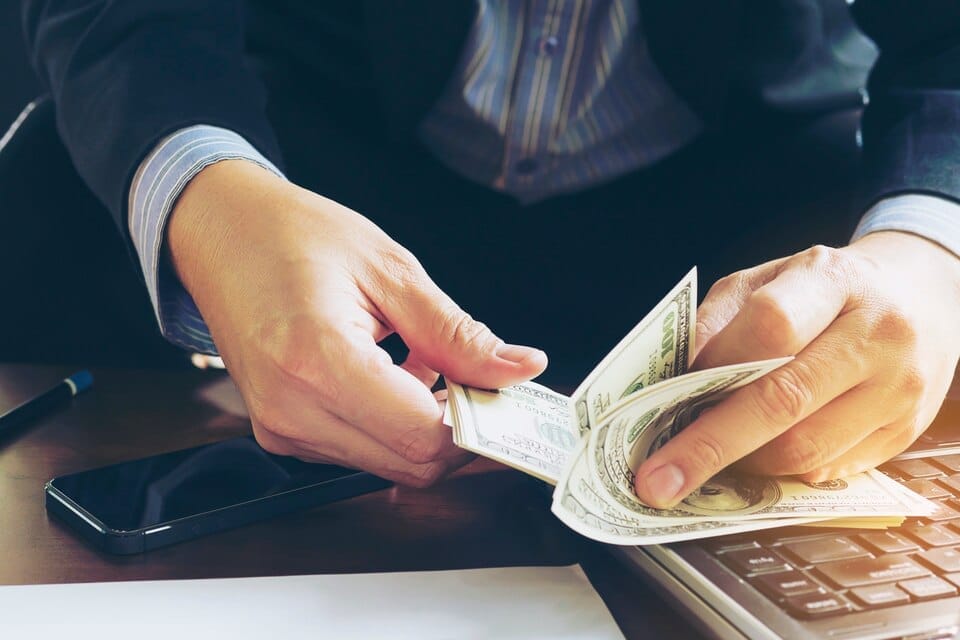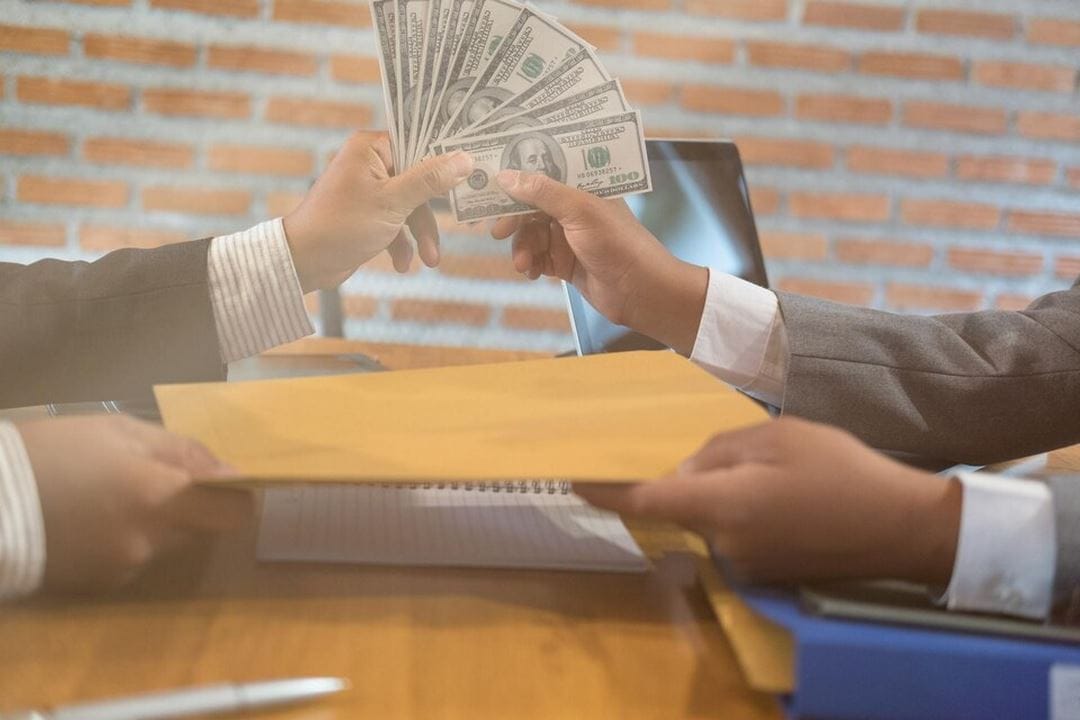What is called money order?
A money order is a secure financial instrument used for transferring funds. It functions as a prepaid document that can be issued by banks, post offices, or other authorized agencies. The sender pays the amount in advance, plus any applicable fees, and the recipient can cash or deposit the money order at their convenience. It is considered a safer alternative to sending cash through the mail and is widely used for transactions where a guaranteed payment is required.

Is money order the same as bank transfer?
No, a money order is not the same as a bank transfer. A money order is a prepaid financial instrument that can be purchased from banks, post offices, or certain retail locations. It requires payment upfront and is often used when a secure method of payment is needed. In contrast, a bank transfer involves electronically moving funds from one bank account to another and can be executed through various channels like online banking or wire transfers.
Is a money order a Cheque?
A money order and a cheque are similar in that both are used to make payments. However, they differ in terms of how they are processed and guaranteed. A cheque is a payment order drawn on a bank account, and it may bounce if there are insufficient funds. A money order, on the other hand, is prepaid and does not rely on the sender’s account balance. This makes it a more secure option as it is guaranteed by the issuing agency.
Read More : Money Order Near Me? All Places for Country
Can we do money order online?
Yes, it is possible to purchase and send money orders online through various services provided by financial institutions and online platforms. This digital convenience allows users to complete transactions without visiting a physical location. Online money order services often require users to enter the recipient’s information and pay for the money order using a linked bank account or credit/debit card.

Is a money order safer?
Money orders are generally considered safer than cash because they are prepaid and require identification for cashing. They are a good alternative for sending money through the mail or making payments when a secure method is needed. However, like any financial instrument, they are not entirely risk-free. Fraud and forgery are potential issues, so it’s important to use reputable sources for purchasing money orders.
Is a money order the same as a wire?
No, a money order and a wire transfer are different financial tools. A money order is a prepaid document used for transferring funds, typically purchased from financial institutions or other authorized vendors. A wire transfer, on the other hand, is an electronic method of transferring money from one bank account to another, often used for faster and larger transactions. Wire transfers generally involve direct bank-to-bank communication and may incur higher fees compared to money orders.
How to get a money order from a bank?
To obtain a money order from a bank, visit the bank’s branch with the necessary funds and identification. Request a money order from a teller, provide the payment amount, and pay any applicable fees. The bank will issue the money order with the specified amount and recipient information. Some banks may also allow money orders to be purchased through their online platforms or ATMs.

Do you need an ID for a money order?
Yes, you typically need to present a valid ID when purchasing a money order. The ID requirement helps prevent fraud and ensures that the person buying the money order is properly identified. Acceptable forms of ID may include a driver’s license, passport, or state ID. The exact requirements may vary depending on the issuer of the money order.
Read More : Can We Do Money Orders Online?
Can I deposit a money order online?
Depositing a money order online is possible through certain banking apps that support this feature. You will generally need to endorse the money order and take a photo of it using your bank’s mobile deposit feature. Some banks may require that you visit a branch to deposit the money order, so it’s essential to check with your bank’s policies.

Can I write a money order to myself?
Yes, you can write a money order to yourself. This might be done for various reasons, such as transferring funds between accounts or using it as a temporary placeholder. However, ensure you comply with any specific regulations or fees associated with issuing a money order to yourself.
How is money sent through money order?
Money is sent through a money order by purchasing it with a specified amount and providing the recipient’s details. The sender pays the amount upfront, and the money order is issued by the issuing institution. The recipient can then cash or deposit the money order at their bank or another authorized location.
Read More : What Is A Money Order And How Does It Work?
What is the difference between a bank order and a money order?
A bank order, such as a cashier’s check, is a payment method issued by a bank on behalf of a customer. It guarantees payment because the bank backs the funds. A money order, however, is purchased with cash or a debit card and does not require a bank account. While both methods guarantee payment, money orders are often used for smaller transactions and do not involve a direct bank account.
Who issues a money order?
Money orders are issued by a variety of entities including banks, post offices, and certain retail locations. The issuing institution guarantees the payment amount, and the money order is backed by the funds provided by the purchaser at the time of issuance.
Is money order a bank transfer?
No, a money order is not a bank transfer. While both are used to transfer funds, a money order is a prepaid financial instrument bought from institutions such as banks or post offices. A bank transfer, however, involves moving funds electronically between bank accounts, which can be done via various methods including wire transfers and ACH transfers.
Is money order a transfer?
Yes, a money order can be considered a form of transfer. It allows the sender to transfer a specified amount of money to a recipient. Unlike electronic transfers, it is a physical document that must be presented to the recipient for cashing or depositing.
Is a money order safe?
Money orders are generally considered safe because they are prepaid and do not rely on the sender’s bank account balance. They also require identification for cashing, which helps reduce the risk of fraud. However, like any financial instrument, they are not completely risk-free, and it’s important to use them through reputable channels.
Source: Consumer Financial Protection Bureau
Can a money order be used internationally?
Yes, money orders can be used internationally, but their acceptance varies by country and location. International money orders are often issued by postal services or specialized financial institutions and can be used to send funds across borders. Always check with the recipient’s country for acceptance and potential fees.
Source: Western Union
What is the difference between a cheque and a money order?
A cheque is a written order from a bank account holder to their bank to pay a specified amount to the recipient. A money order, in contrast, is prepaid and not linked to a bank account. While both can be used for payments, money orders are often used when the sender does not have a bank account or wants to ensure the payment is guaranteed.
Read More : How to Fill Out a Money Order Like a Pro
How do I send a money order?
To send a money order, purchase it from a bank, post office, or authorized retailer. Complete the money order form with the recipient’s name and address, and your own information. Pay the amount of the money order plus any applicable fees. After filling it out, give or mail the money order to the recipient.
Source: USPS
What is money order method?
The money order method involves buying a prepaid document used to send funds securely. You purchase the money order with cash or a debit card, complete the recipient’s details, and pay any applicable fees. The recipient can then cash or deposit the money order, which is guaranteed by the issuing institution.
Source: The Balance
What is another name for a money order?
Another name for a money order is “postal order.” This term is often used in certain countries, particularly where postal services issue these financial instruments.
How long do money orders take?
Money orders are typically processed quickly, often within a few minutes to a few hours. However, the time for the recipient to cash or deposit the money order may vary depending on their bank’s processing times and any additional verification steps required.
Source: USPS
What is the English of money order?
The English term “money order” refers to a payment instrument that is prepaid and used for transferring funds securely. It is a written order that allows a person to send a specific amount of money to another individual or entity.
Source: Merriam-Webster
What is the maximum amount for a money order?
The maximum amount for a money order can vary depending on the issuer. For example, the U.S. Postal Service limits domestic money orders to $1,000, while international money orders have different limits. Check with the issuing organization for specific limits.
Source: USPS
How to fill a money order form?
To fill out a money order form, write the recipient’s name in the designated “Pay to the Order Of” field. Include your name and address in the “From” section. Enter the amount in both numeric and written forms. Sign the form where indicated. Ensure all fields are filled out accurately to avoid issues with the payment.
Source: NerdWallet
Is money order the same as draft?
No, a money order is not the same as a draft. A draft, such as a bank draft, is a payment order issued by a bank and guarantees payment from the bank’s funds. A money order is purchased with cash or debit and is typically used for smaller transactions. Both are guaranteed forms of payment, but they differ in their issuance and usage.
Can you cancel a money order?
In some cases, you can cancel a money order, but the process and fees may vary depending on the issuer. You typically need to provide the money order serial number and other details. If the money order has already been cashed, cancellation is not possible. Contact the issuing agency for specific procedures.
Source: The Balance
Do I need a bank account for a money order?
No, you do not need a bank account to purchase a money order. Money orders can be bought with cash or a debit card from banks, post offices, or certain retail locations. However, having a bank account can facilitate other financial transactions related to money orders.
Source: Consumer Financial Protection Bureau
Is a money order a wire?
No, a money order is not a wire transfer. A money order is a prepaid financial instrument purchased with cash or a debit card. A wire transfer is an electronic method of transferring funds between bank accounts, often used for faster transactions and larger amounts.
Source: Bankrate








